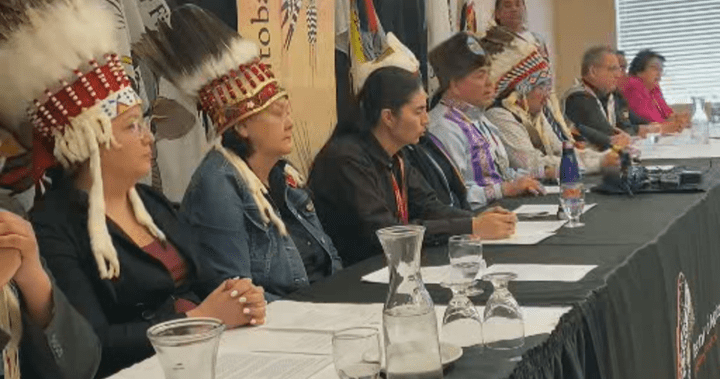Eight First Nations surrounding Lake Winnipeg have filed a joint lawsuit against the federal government, the province of Manitoba, and the City of Winnipeg for ongoing pollution of the lake and its tributaries, seeking $4 billion in damages collectively. The nations express a deep spiritual connection to the water in Manitoba and feel a duty to protect it. Chief Sheldon Kent of Black River First Nation emphasizes the need for accountability, citing a double standard in how governments enforce regulations on Indigenous communities versus themselves. He believes the lawsuit is necessary to push the government to take action and engage in meaningful conversations about protecting the environment.
Chief Kent highlights the lack of dialogue between Indigenous peoples and the government as a significant issue. Chief Gordon Bluesky of Brokenhead Ojibway Nation echoes this sentiment, emphasizing that the development of cities and towns should not come at the cost of destroying Indigenous waters and environments. He views maintaining and cleaning the water as a crucial aspect of reconciliation, stating that a healthy Lake Winnipeg is essential for the well-being of Indigenous communities and future generations.
The ongoing pollution of Lake Winnipeg has been a pressing concern, with major sewage spills occurring as recently as February of the year in which over 220 million liters of raw sewage entered the Red River. The City of Winnipeg has responded to the lawsuit by stating that they are reviewing the claim and determining next steps. Both the federal and Manitoba governments have acknowledged the request for comment but have yet to provide a full response. The lack of action and accountability from the government has further fueled the frustrations of the First Nations communities surrounding Lake Winnipeg.
The Chiefs involved in the lawsuit believe that legal action is necessary to hold the government accountable for the pollution of Lake Winnipeg and its surrounding waterways. They emphasize the importance of protecting the environment for future generations and view a healthy lake as essential for reconciliation. Chief Bluesky points out that there are unresolved treaty issues related to the waters, and Indigenous communities must be included in discussions regarding the preservation of the environment. The lack of dialogue between the government and Indigenous peoples remains a significant barrier to meaningful progress on environmental protection.
Chief Kent and Chief Bluesky’s statements underscore the deep connection that Indigenous communities have to the land and water, emphasizing the need for the government to prioritize environmental protection. The lawsuit serves as a way for the First Nations to make their voices heard and demand accountability for the ongoing pollution of Lake Winnipeg. This legal action represents a critical step in ensuring that the government takes responsibility for its role in safeguarding the environment and engaging in meaningful conversations with Indigenous communities about the importance of preserving natural resources for future generations.













